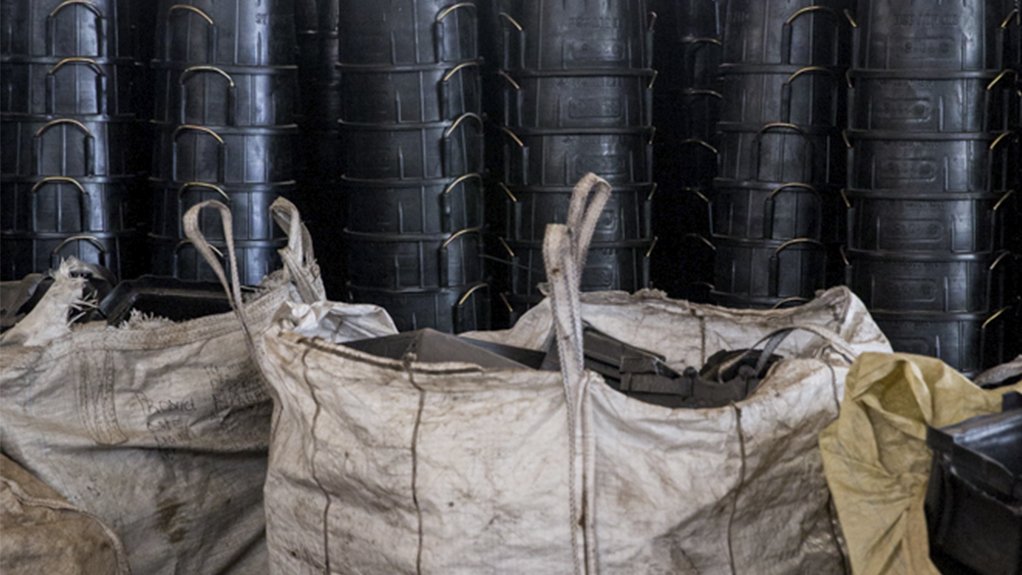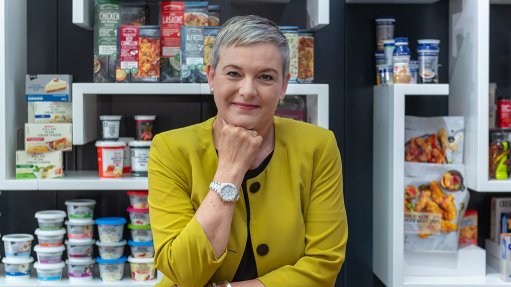Programme expands into other provinces



REPURPOSED Where one company sees waste, another might see a valuable resource
VICTOR MANAVHELA A zero waste economy requires the active participation of all members of society at all levels
National Cleaner Production Centre South Africa’s (NCPC-SA’s) Industrial Symbiosis Programme (ISP) is on track to be launched in the Eastern Cape and the Free State before the end of the year, says NCPC-SA national programme manager Victor Manavhela.
“We are to conclude feasibility studies in these two provinces soon. The pointers are positive that the ISP will yield significant results insofar as the waste economy and green economy is concerned,” he tells Engineering News.
The ISP is a facilitation service offered by the NCPC-SA that promotes the exchange of residual resources between companies. Where one company perceives a residual resource as waste, another company might perceive that same resource as a key input for its production.
The ISP aims to find ways of connecting such companies to facilitate a mutually beneficial exchange, resulting in economic, social and environmental benefits for those involved using resources such as production or building materials, energy, water, production waste, assets, logistics and expertise.
The idea is to build a sustainable network of businesses with synergetic links between them. This synergy is deemed complete when resources are exchanged to the benefit of both parties. The waste streams that are identified can even result in the development of entirely new business opportunities for local small, medium-sized and microenterprises (SMMEs) in the waste sector.
Since its launch in 2014, the ISP has been implemented in Gauteng, Limpopo, Mpumalanga, KwaZulu-Natal and the Western Cape – the latter of which is run by non-profit organisation GreenCape.
Manavhela says the plan is to eventually have the ISP active in all nine provinces. Once the ISP is activated in the Eastern Cape and the Free State, only the Northern Cape and North West remain.
The rollout of the ISP in the North West is delayed, owing to governance issues, but the programme will be rolled out in the Northern Cape in the 2022/23 financial year, he adds.
The outbreak of Covid-19 contributed to delays in the ISP’s expansion into other provinces and caused some setbacks among SMMEs operating in the waste-reclaiming space. The negative impact was most severe during the Level 5 and 4 lockdowns last year.
A Rising Need
Climate change awareness has increased globally over the past decade, while the green economy and opportunities for recycling waste into usable resources have also grown significantly, in line with a rising sense of urgency.
Moreover, with South Africa on the brink of its own waste management crisis, the ISP is a welcome contributor to mitigating its impact.
The ‘South Africa State of Waste Report’ published by the then Department of Environmental Affairs in 2018, illustrates the gravity of the local waste situation.
It states that, of the estimated 107.6-million tons of waste generated in South Africa in 2017, about 85.5-million tons – or about 80% – including general and hazardous waste, were destined for landfills.
In 2017, South Africa generated about 55.6-million tons of general waste, of which only 34.5% was recycled and recovered, whereas 65.2% was landfilled. During the same period, South Africa generated about 55.6-million tons of hazardous waste, with an estimated 6.6% being recycled or treated. As much as 93% of this was disposed of in landfills.
These figures confirm that landfill disposal continues to be the dominant waste disposal method in South Africa. Therefore, a significant opportunity exists for large volumes of waste to be potentially diverted away from landfill sites towards recycling or reuse alternatives.
“The need to have a coordinated supply of materials for various products is much higher than it used to be – a need which is meet through the ISP. Landfill space, especially in urban metros and municipalities continues to be under rising pressure,” Manavhela says.
He adds that the increased pressure on landfills will inevitably lead to higher waste disposal costs, thereby negatively affecting companies’ bottom lines and competitiveness.
Recent developments in terms of waste regulations, such as the 2020 National Waste Management Strategy (NWMS), issued by the Department of Forestry, Fisheries and the Environment as an update on the 2011 NWMS – a legislative requirement of the Waste Act of 2008 – have served to place the ISP in an ideal position for realising key national waste management strategies.
Manavhela notes that the Extended Producer Responsibility (EPR) regulations promulgated in May, which give effect to Sections 18 and 69 of the Waste Act, furtherprovide an enabling environmentfor the ISP to “close some of the gaps”.
The aim of the EPR is to increase the recycling, reduction, reuse and recovery rate, and expand the circular economy through public–private collaboration.
The EPR regulations apply to electrical and electronic equipment, lighting, paper, packaging and other single-use product sectors.
They outline a new approach to waste management that aims to increase the diversion of waste away from landfills.
Article Enquiry
Email Article
Save Article
Feedback
To advertise email advertising@creamermedia.co.za or click here
Press Office
Announcements
What's On
Subscribe to improve your user experience...
Option 1 (equivalent of R125 a month):
Receive a weekly copy of Creamer Media's Engineering News & Mining Weekly magazine
(print copy for those in South Africa and e-magazine for those outside of South Africa)
Receive daily email newsletters
Access to full search results
Access archive of magazine back copies
Access to Projects in Progress
Access to ONE Research Report of your choice in PDF format
Option 2 (equivalent of R375 a month):
All benefits from Option 1
PLUS
Access to Creamer Media's Research Channel Africa for ALL Research Reports, in PDF format, on various industrial and mining sectors
including Electricity; Water; Energy Transition; Hydrogen; Roads, Rail and Ports; Coal; Gold; Platinum; Battery Metals; etc.
Already a subscriber?
Forgotten your password?
Receive weekly copy of Creamer Media's Engineering News & Mining Weekly magazine (print copy for those in South Africa and e-magazine for those outside of South Africa)
➕
Recieve daily email newsletters
➕
Access to full search results
➕
Access archive of magazine back copies
➕
Access to Projects in Progress
➕
Access to ONE Research Report of your choice in PDF format
RESEARCH CHANNEL AFRICA
R4500 (equivalent of R375 a month)
SUBSCRIBEAll benefits from Option 1
➕
Access to Creamer Media's Research Channel Africa for ALL Research Reports on various industrial and mining sectors, in PDF format, including on:
Electricity
➕
Water
➕
Energy Transition
➕
Hydrogen
➕
Roads, Rail and Ports
➕
Coal
➕
Gold
➕
Platinum
➕
Battery Metals
➕
etc.
Receive all benefits from Option 1 or Option 2 delivered to numerous people at your company
➕
Multiple User names and Passwords for simultaneous log-ins
➕
Intranet integration access to all in your organisation




















